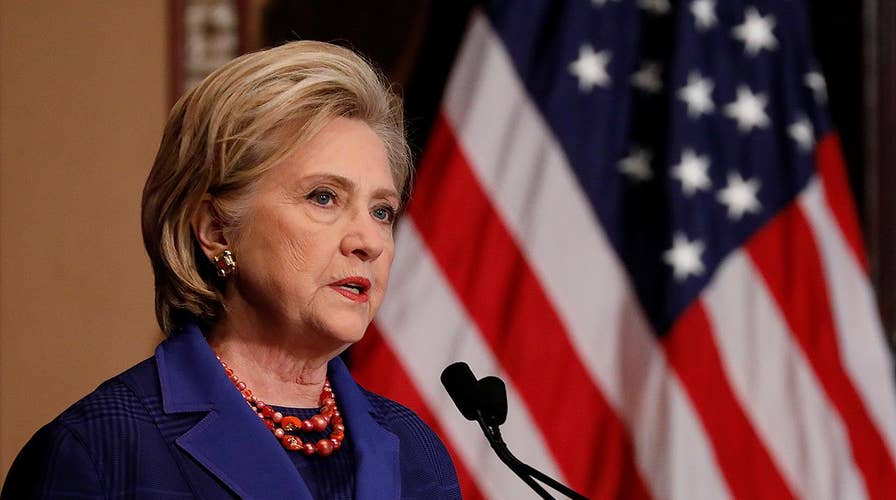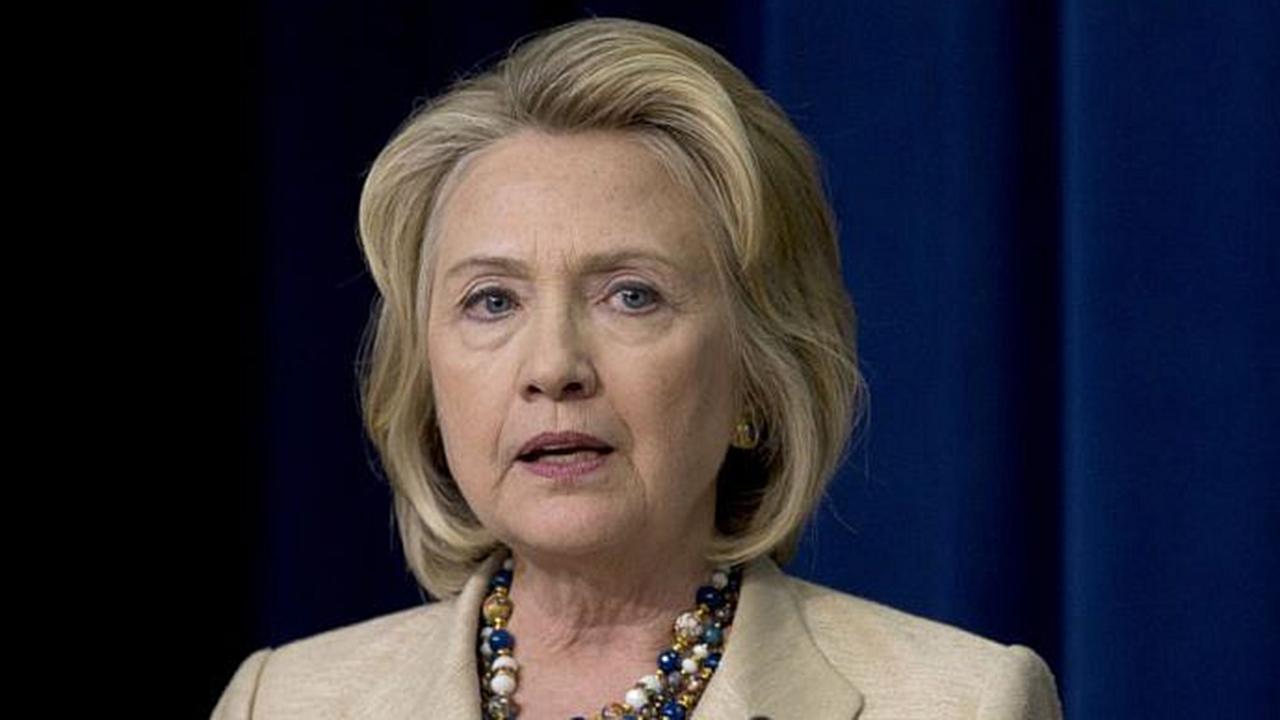Hillary Clinton questions women's independent thinking
Hillary Clinton blames her election loss on married women. Tammy Bruce gives her take.
First there was the casual sexism: the reason white women didn’t back her when she ran for president, Hillary Clinton believes, is “a sort of ongoing pressure to vote the way that your husband, your boss, your son, whoever, believes you should.”
Have you noticed that her sneering always seems to take the same form? She’s become the queen of the contemptuous listicle that tails off into a snarling “whatever.”
Remember the formulation in the speech where she came up with the term “basket of deplorables?”
“You could put half of Trump's supporters into what I call the basket of deplorables,” Hillary said. “Right? They’re racist, sexist, homophobic, xenophobic – Islamophobic – you name it.”
“Whoever.” “You name it.” Clinton’s catalog of insults to the people she once hoped to represent typically ends with the rhetorical equivalent of an exasperated monarchical hand sweeping people away as if they were serfs who had dared to show their dirty faces to the queen.
But Hillary really outdid herself recently in Mumbai in India.
After dismissing American women who dared to vote against her as brainless robots when it comes to politics – this from the self-styled champion of women! – she went on to describe Trump supporters (roughly half the country, let’s remember) as people who “didn’t like black people getting rights, you don’t like women getting jobs, you don’t want to see that Indian-American succeeding more than you are.”
Let’s not waste too much time on how unintelligent, offensive and bigoted that remark really is. The best response might just be to point to one prominent Trump supporter who now serves in the president’s Cabinet: U.S. Ambassador to the United Nations Nikki Haley, an Indian-American professional woman who as governor of South Carolina not only took down the Confederate flag but said that it “should never have been there.”
The really important part of Hillary’s “Deplorables 2” moment, however, and one that we really should pay a lot of attention to, was her description of America itself – especially our economy and how it relates to politics. In many ways, her analysis was exactly right. It was her response that was so deeply, disturbingly wrong.
Here’s how she put it: “If you look at the map of the United States, there’s all that red in the middle where Trump won. I win the coasts. But what the map doesn’t show you is that I won the places that represent two-thirds of America’s gross domestic product. So I won the places that are optimistic, diverse, dynamic, moving forward.”
Put aside the total lack of empathy or compassion for the parts of America that are not “moving forward.” The important point is that for the last few decades, it is absolutely true that America has become more and more divided when it comes to economic progress. Not just between the coasts and the heartland – although that is certainly a big part of it. But between big cities and smaller towns and rural areas.
This is not inevitable, or the result of some force beyond our control, like the weather. It is the logical outcome of an ideological policy agenda that has been pursued consistently over the past few decades by a ruling elite in both main parties, supported by big business and a growing army of technocrats and bureaucrats who have seized the levers of power.
We can describe their ideology as elitism. Its central characteristics are a belief in globalization, automation, centralization and uncontrolled immigration.
This elitist ideology ushered in the modern, globalized “knowledge economy.” There are many good things about this new economy that we should welcome and celebrate. And no one should begrudge the people who have benefited from it. In America, we should always celebrate success.
But what about the people and the places not benefitting from elitism? The consequences of the elitist policy agenda are pretty much as Hillary described in her Mumbai remarks. Huge parts of America are not booming; they are suffering.
Of course, the shocking (but perhaps unsurprising) cruelty of what she said was that instead of trying to help working Americans left behind by the elitism that she represents, she just consigned them to the scrapheap. She seems to be saying: If you wouldn’t vote for me, why should I help you?
This is where populism needs to step in. We need positive plans to revive the economy and repair the torn social fabric in the two-thirds of the country that Hillary and the establishment Democrats have no time for.
Controlling immigration and making trade fair; transforming education and worker training; investing in infrastructure; taking the technology revolution nationwide – these are some of the priorities for Positive Populism, the theme of The Next Revolution. How can we turn the failure of the elites into a positive agenda for change that helps working Americans – in every part of the country?
We’ll be debating all this on Sunday at 9 p.m. EDT on the Fox News Channel – hope you can join us!


